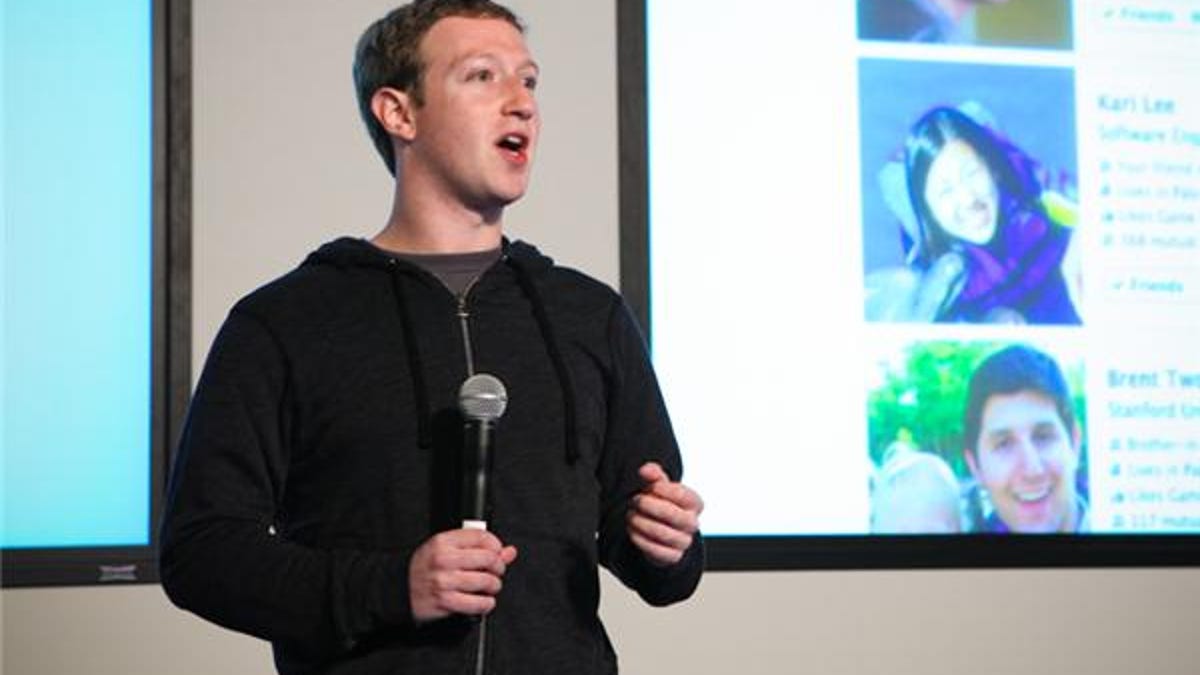Facebook Graph Search: 4 big reasons it matters
<b>commentary</b> CNET's Jennifer Van Grove dissects the implications of a Facebook search engine that caters to changing behaviors and exposes a generation that lives in public.

In its most basic state, Facebook's nascent Graph Search is a structured search engine for finding people, places, photos, and interests on Facebook. But the third-pillar product, which surfaces information hiding in Facebook's secret garden, has depth that we're only beginning to understand.
Graph Search is a new paradigm in search that could make modern search giants start to look dated. It's also a powerful new vehicle for discovery. Ultimately, Graph Search is smart, original, and a foundational piece of Facebook's future as a relevant social network.
Let's talk about why.
1. Graph Search caters to changing online behaviors
Facebook was the most-visited website in the U.S. in 2012, and 17 percent of time spent online via personal computer is on Facebook. In short, today's web is very different than the one that Larry Page and Sergey Brin decided to index in 1995. The how and the why pieces behind the search formula have changed.
Facebook may not be going after traditional web search, but that's because it doesn't need to. The social network has data from one trillion connections, data that covers people's preferences and relationships, data that tells the story of our lives.
Twitter user Adam O'Neill was peeved that the first CNET news post on Graph Search ran with the headline, "Facebook takes on Google with Graph Search." He called it misleading. My editor Charlie Cooper actually came up with that headline and it was before either of us had time to fully digest the news or its implications, but it's far more accurate than both of us realized.
As I told Mr. O'Neill in 140-character speak:
@aoneillpro not misleading in the slightest. have to think it all the way through. content people want to find is increasingly on FB.
-- Jenn Van Grove (@jbruin) January 15, 2013
As Facebook becomes the center of our universe and houses our relationships, our photos, and our memories, our information-seeking needs will change. What are my friends listening to? Where are they eating? What photos did they take at Sharon's birthday party? Do I know anyone who works for that company I want a job at? I'm thinking about moving, who do I know that lives in San Francisco? What's that new guy I'm dating really into? Facebook, not Google, is better equipped to provide these answers.
2. Graph Search is a simpler way to navigate Facebook
Facebook's formal navigation is configured through the left-hand sidebar that houses members' favorite sections and provides one-click access to Pages and apps. Facebook is a messy mini web with too much content. The left-hand sidebar is meant to make sense of the chaos. It's an organizational system -- but it's a really bad one.
Graph Search practically obviates the need for the sidebar altogether and offers members an entirely different way to explore. The new bar serves as a gateway to all the people, places, and things housed within Facebook. It's simpler, more intuitive, and boundless.
3. Graph Search had to come before the "Facebook Phone"
The Facebook Phone seems like pure urban legend at this point, but should it exist, it's not a stretch of the imagination to think that it would have a custom Facebook mobile operating system. How would that operating system work and what would make it special? I believe we got the answer to both of those questions with Graph Search.
If Facebook did build a mobile phone operating system, it would follow that Graph Search would be the search functionality embedded within that OS and would direct people down a never-ending path of mobile discovery: apps, friends, photos, places, and so forth. Graph Search is Google Now or Siri without the voice component.
4. We live in public
Privacy schmivacy. The next generation of social network users care more about satisfying their needs, be they egotistical or professional in nature, than they do about privacy.
Darius, a 22-year-old fashion designer summed up Generation Y's attitude on privacy with this statement: "We live in public."
Darius, one of six astute consumer panelists on a digital media panel at CES, is incredibly self-aware and he chooses to filter himself on social sites. His comment about living in public struck me because it perfectly aligns with Mark Zuckerberg's frequently stated mission to make the world more open and connected.
Graph Search is a realization of a future where privacy concerns will be outweighed by a more satisfying online existence. It's scary for a number of reasons. Graph Search will surface stuff we older folks never realized was public. Facebook will get to know us better by our search queries and share that information with advertisers. And so forth. But the coming-of-age generation doesn't really care.
Darius and the other 20-somethings on that CES panel are actually okay with ads in their social networks -- so long as they're relevant. "If ads are tailored to me, I'm totally fine with them," Tess, a female panelist, said, "but [advertisers] really should get it right."
Graph Search has its frightening elements, for sure, but it's a reflection of the times.

